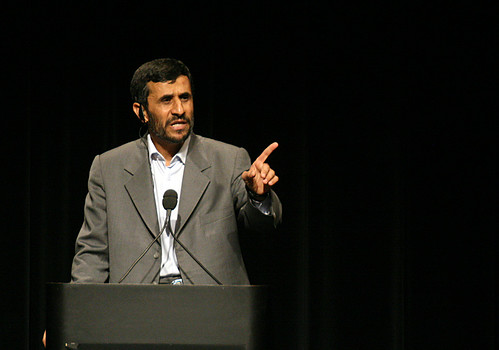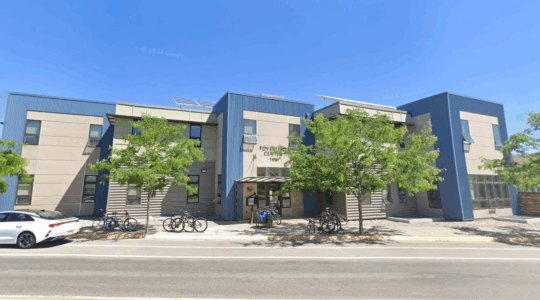
The Columbia Spectator reported over the weekend that Iranian President Mahmoud Ahmadinejad may be addressing Columbia students again by the end of the month, this time at a small private dinner with the Columbia International Relations Council and Association (CIRCA).
[[READMORE]]
Members of the group were informed over the summer that they might have the opportunity to bring 15 students to dinner with the head of state, whose views on Israel, human rights, and homosexuality have drawn sharp criticism.
[CIRCA vice president of academics, Tim Chan, CC ’14] said that so far he hasn’t heard any concerns from members of the group.
“Everyone was really enthusiastic,” Chan said. “They’re thrilled to have this opportunity.”
Columbia students (and other interested onlookers) may be interested in comparing the response to Ahmadinejad’s 2007 address with the reception that awaited German Ambassador to the United States Hans Luther in Dec. 1933:
Braving a demonstration by student and New York anti-Fascist organizations, Dr. Hans Luther, German ambassador to the United States, lectured before a large audience in the Horace Mann auditorium at Columbia University Tuesday night.
In sharp contrast to his address last Wednesday before enthusiastic celebrants of German Day in the Madison Square Garden when he launched a severe attack on the Versailles Treaty, Dr. Luther was strictly on the defensive before his highly critical audience at the university. Despite the efforts of large detachments of police who had been stationed within and outside the auditorium, heckling and anti-Nazi protests were distinctly more significant of popular sentiment than the support gained by the German ambassador.
Repeated charges by police and their severely enforced restrictions against loitering outside the auditorium failed to dampen the ardor of anti-Fascist groups of Socialist, Communist, and independent organizations.
Luther, lending his address to a defense of his chancellor’s policies, confined his remarks to denials of Germany’s reported desire for war and export of Nazi propaganda, particularly to the United States, for the purpose of undermining the constitution of this country…
[Image: Daniella Zalcman, CC-BY-2.0]
JTA has documented Jewish history in real-time for over a century. Keep our journalism strong by joining us in supporting independent, award-winning reporting.





